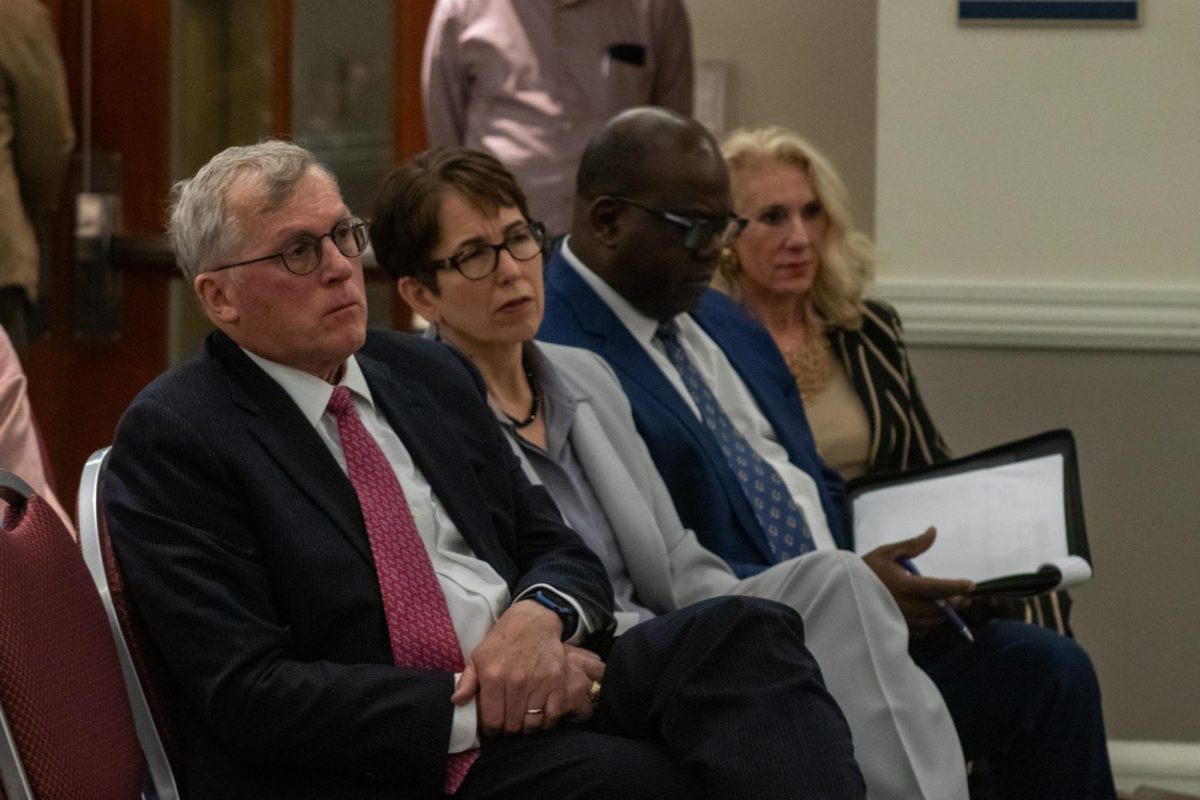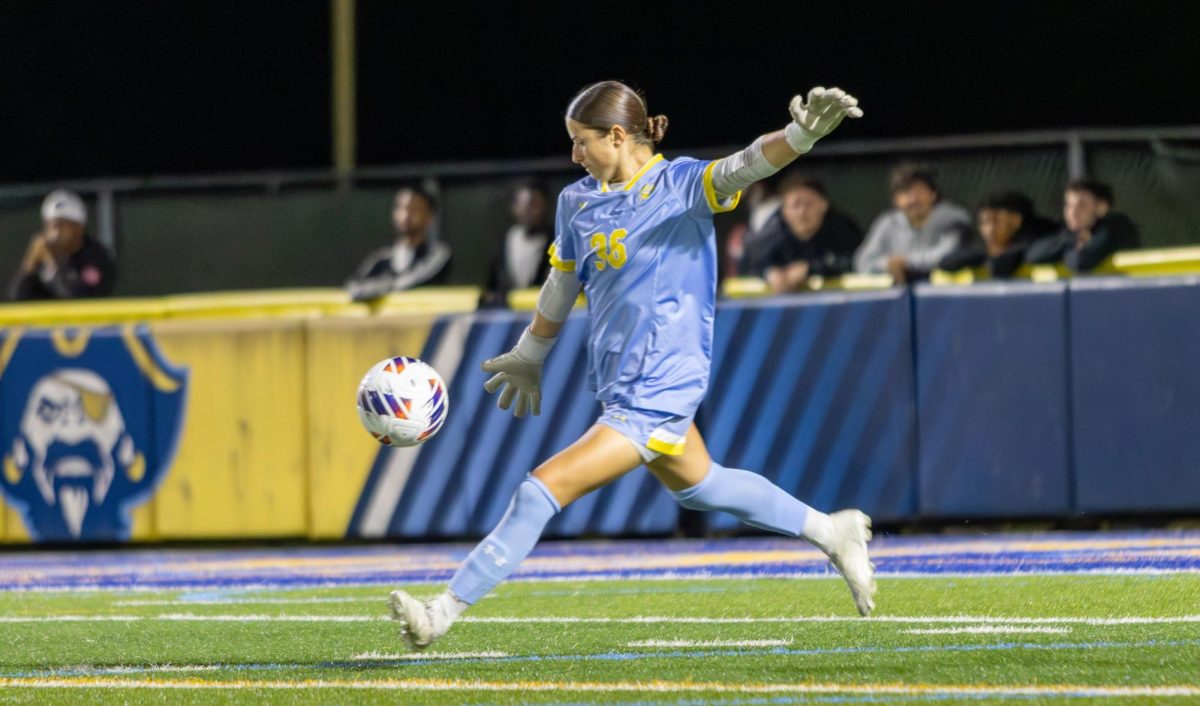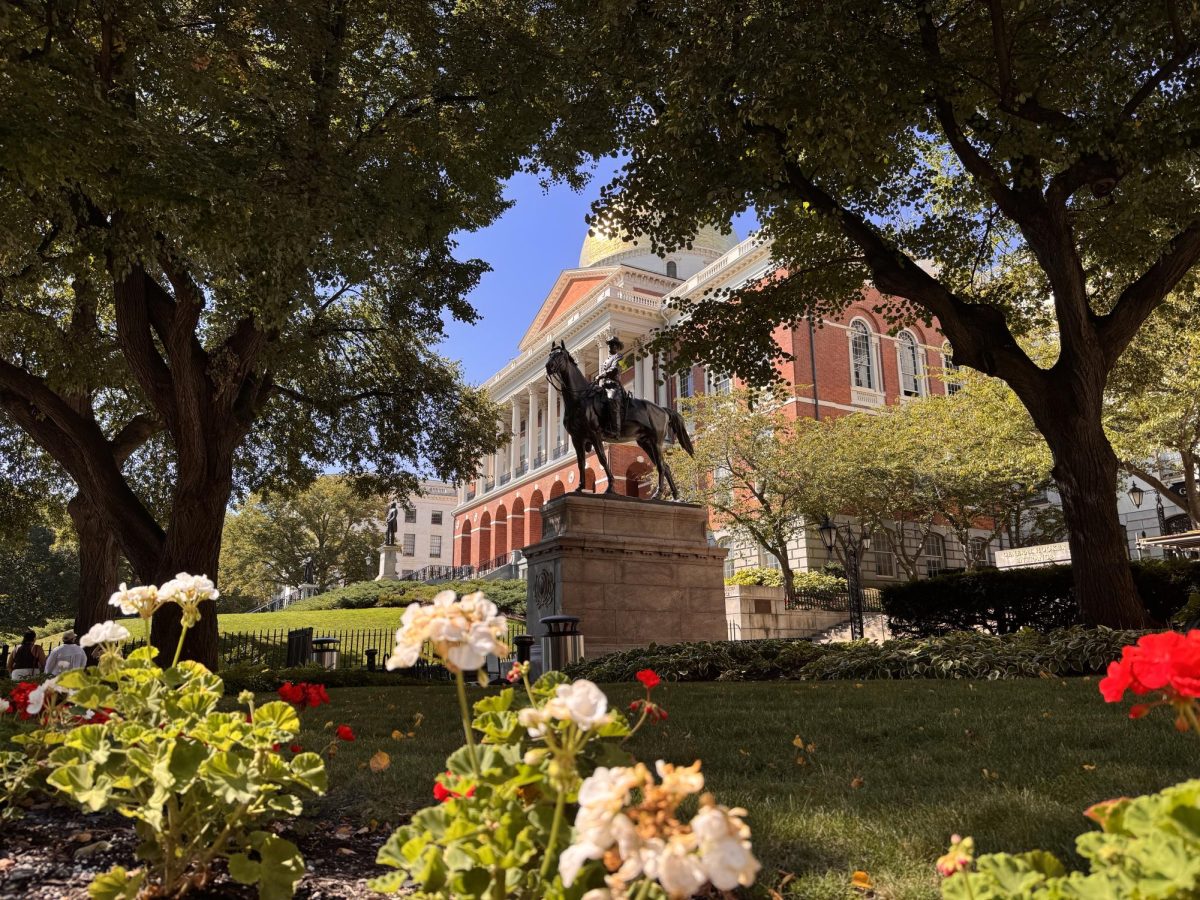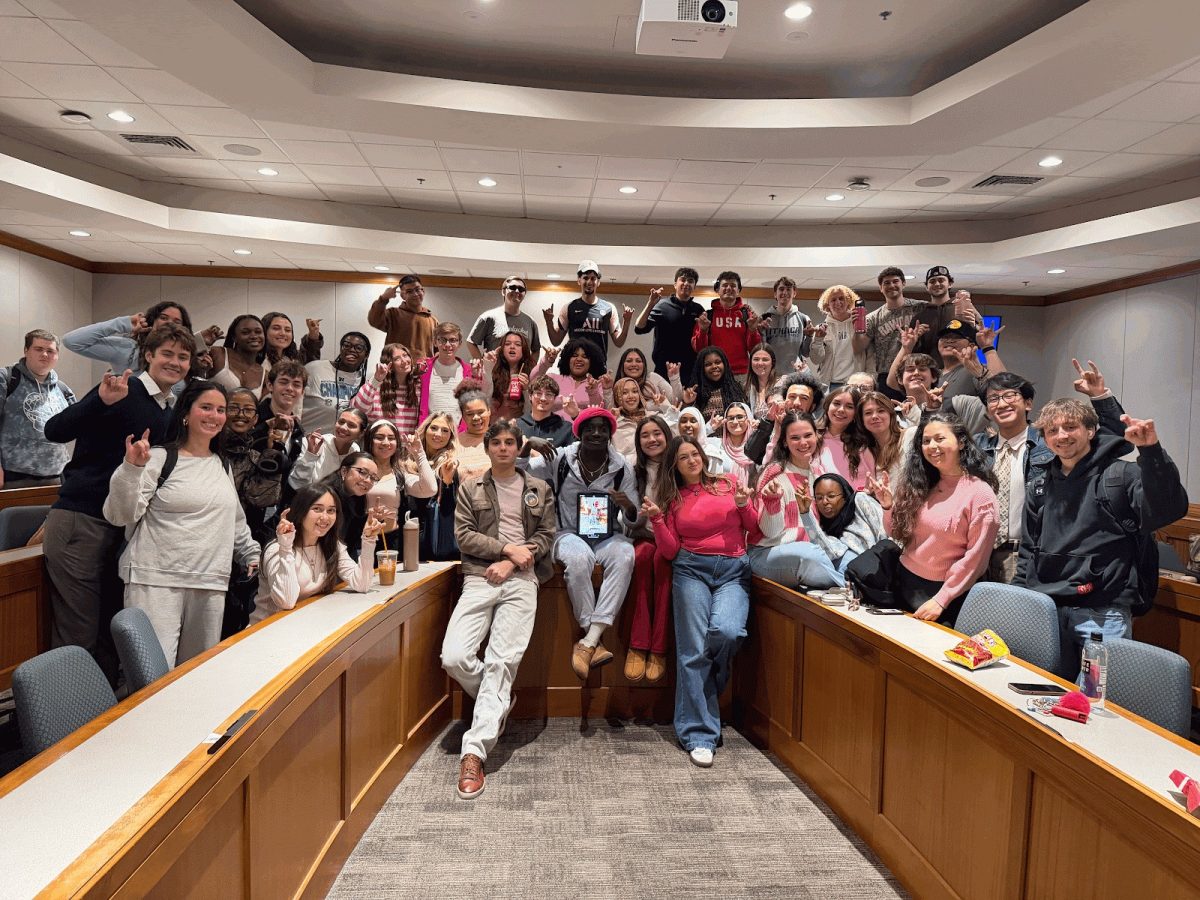Suffolk University faculty from the College of Arts and Sciences and the Sawyer Business School voted to censure President Marisa Kelly and Board of Trustees Chair Robert Lamb. After CAS voted Tuesday, results await a vote from Law School faculty set for next week.
If issued, the censure would act as a formal reprimand for Kelly and Lamb’s leadership, and is a “significant and rare symbolic vote of disapproval by the faculty” and means that faculty “do not trust the leadership of the President and Board Chair but are still willing to work with them to resolve these issues,” according to the resolution draft obtained by The Suffolk Journal.
According to the resolution, the decision to censure comes in response to a lack of faculty involvement in decision-making processes that directly impact faculty members. Faculty members believe agreements to “shared and transparent governance” outlined in the faculty handbook have been violated and they have not been properly involved in conversations before decisions are finalized.
“The faculty censure resolution has been brought forth because the senior administration is not following the principles of shared governance and transparency as agreed to in our University Faculty Handbook. We question a number of the policies that have been made by the President and Board Chair over the past few years, and believe that they have been made, in part, because faculty did not have a voice in those decisions,” said Robert Rosenthal, chair of the faculty senate and the advertising, public relations and social media department.
In an exclusive interview with The Suffolk Journal Tuesday afternoon, Kelly said that while it would be ideal for decisions to please all community members, sometimes difficult choices must be made to ensure the central goals of the institution are upheld.
“I am committed to and stand by the decisions that we made,” said Kelly.
The resolution cites a recent decision by the administration to cut university contributions to retirement plans and reduce matches on health insurance plans from 9% to 6%. According to the resolution, these decisions that directly impact faculty were made without providing an opportunity for input or advance notice.
Suffolk participated in the Mercer Benchmark study in 2022, an independent review of faculty salaries and how they line up to national trends for comparable positions, revealing that “Suffolk faculty salaries lag substantially behind those of our peer institutions,” as stated in the resolution.
As faculty members have been laid off in recent years, Kelly earns $953,003 with an additional $51,882 according to the university’s 2022 form 990 filing.
The closing of Suffolk’s Madrid campus and a decision to enter a strategic partnership with Curry College are also discussed in the resolution, which states that the lack of transparency and requests for faculty and staff input are “a breach of trust that binds our University community together.”
Kelly described the breakdown of shared governance. According to Kelly, faculty have academic freedom over how their discipline is taught and are central to that area of decision-making, for example, while there are other areas such as employee benefits and budgets that fall into administration’s control.
The gray area where both faculty and administrators are engaged in decisions is a commonly debated space at universities.
“I think there are things that should unquestionably, fully fall to the faculty and other things which fall to administrators, and then we debate about the stuff in the middle,” said Kelly.
Rosenthal said this definition ignores the component of shared governance that faculty should be involved in conversations regarding decisions that directly impact them and Suffolk’s students.
“What we’re asking for is not to make decisions, but be included in the decision-making so we can bring our voice to the table,” said Rosenthal. “Of course we’re concerned about our healthcare and our retirement funds and how things are budgeted to make sure that an appropriate amount of budget is going towards the classroom experiences opposed to other experiences.”
Kelly said several of the concerns raised in the resolution will be discussed by the appropriate bodies, such as before the budget advisory committee. Overall, if the resolution to censure passes, Kelly said she and the administration will continue to have conversations with community members on the concerns voiced by the vote.
“We connect, we engage, we talk about it, sometimes we move forward together and make changes or resolve something and other times we agree to disagree,” said Kelly.
According to Kelly, the university assessed all employees’ salaries against similar institutions, starting with faculty members, beginning two years ago with the goal of adjusting salaries to more closely match market rates. Kelly said this began a routine of benchmarking positions every four years and another round of increases is set for next year.
Kelly said moving forward, the budget advisory committee will be involved in the annual review process before changes to employee health insurance are made.
As faculty members continue conversations around the censure vote, they hope to prompt changes in how decisions are made that impact their lives both inside the classroom and out.
“We want the administration to be better informed by including faculty in their decision-making processes,” said Rosenthal.
Read the draft resolution being voted on by faculty across the University’s three schools below.























Randy • Jan 11, 2025 at 8:51 am
They evaluated pay at comparable universities to guide their decisions about salaries, yet it’s well known that salaries are already below the average of comparable universities. How does this contrast foster confidence in their decision making?
Mac • Dec 11, 2024 at 10:04 am
Kelly does not contribute work worth $1.05 mil a year to the University. I hope they find a replacement soon.